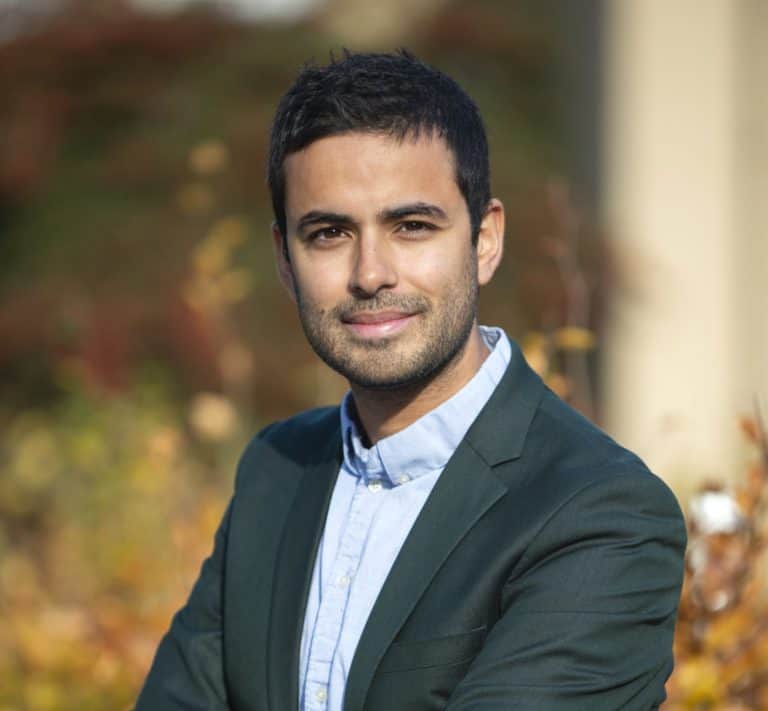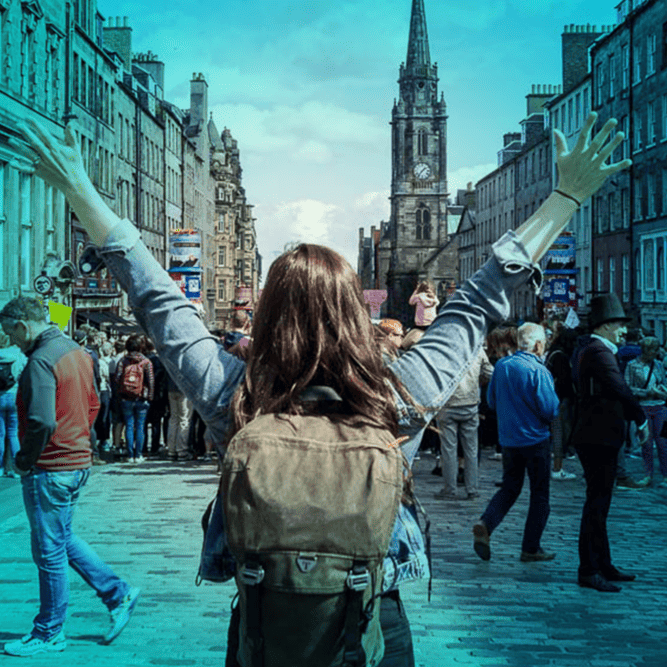To be a tourist is to choose the unknown over the familiar. The tourist steps outside their workaday life and embraces something totally different. This process of de-familiarising might seem frivolous, ‘extra’, an added bonus, the icing on the cake. On the contrary; it has the power to shape every aspect of a person’s everyday life. In the same way, tourism is not the ‘icing on the cake’ sector. The tourism sector is integral to both the Scottish economy and our country’s reputation on the global stage.
Bringing these two insights to bear on the potential of data science throws up some really exciting opportunities for the sector. What if we approach data with the excitement of a tourist? How can embracing the unknown, the serendipitous, the surprising, help us move beyond the now well-trodden paths of narrow recommendation systems? What if we stopped thinking of tourism data as peripheral, and placed it at the heart of a regional growth framework?
My role is to keep asking these exciting questions and to enlist the help of a huge, talented range of groups and individuals in the pursuit of some answers. And what better place to do this than in the Edinburgh & South East Scotland City Region. I couldn’t be in a better place to develop a plan for the radical and dynamic use of tourism data. And just as the tourist returns home refreshed, or with a new perspective on life, so the ripple effect of outstanding, innovative data use in tourism has the potential to boost not only the sector itself but the entire regional economy.
Start with a problem
So what could this look like? Well crucially, it would be challenge-oriented.
Nesta’s Eddie Copeland has developed a succinct and useful framework for the use of data analytics in the public sector and it has relevance for the tourism sector. Eddie suggests that when starting a data analytics project it helps to have a specific problem in mind. The application of data science is most useful when insights enable defined actions or generate new value. With that in mind I have identified a few of the broad challenges facing the tourism industry in the Edinburgh and South East Scotland City Region:
Who can you trust?
The integrity and reputation of a travel destination depend on visitors consistently enjoying their experience. From the booking process to the journey home every step should minimise stress and maximise fun and anticipation. Surveys and more surveys have historically been our method for measuring destination quality, but over the last decade, online reviews and social media provide the best indicators for quality.
The rise of fake news and fake reviews has made it difficult for visitors to know what to trust when choosing and booking a holiday. Sometimes even the travel companies themselves have been found to be engaging in potentially misleading behaviours.
Social media data is plentiful but difficult to analyse without the right expertise to produce nuanced insights and to avoid clumsy mistakes.
There are some interesting approaches being tested. The talented Vishal Kumar at UCL is exploring new methods using social media to explore London’s events and cultural offering. Amassing text data means ‘unnatural reviews’ are now being unmasked on Amazon and other sites.
The three Rs — recruitment, rising costs and revenues
It is increasingly difficult and expensive to recruit and retain staff in the hospitality industry. The prices of raw materials, food and drink and insurance are increasing whilst revenues are being squeezed with higher commissions. Tourism is a sector made up of mostly small companies with tight turnover Combined with the uncertainty of Brexit, the sector is potentially facing a perfect storm of fiscal pressure.
Data science has a role to play in relieving this pressure. From predicting demand, and optimising a restaurant’s perishable stock, to Fisher’s intelligent bedsheets, data has been shown to improve the efficiency of the supply chain in the tourism sector. Chatbots and process automation are being used to provide less resource-intensive ways of delivering more personalised customer service.
The visible (and invisible) burden (and benefits)
During the summer months, Edinburgh’s Old Town gets very busy and often overcrowded. Traffic increases, making it harder for everyone to get to where they want to be. This annoys local people and can compromise the visitor experience. And that is just what we can see and feel. The invisible burden on our infrastructure is what we haven’t yet quantified. At the Edinburgh Tourism Action Group conference, Megan Epler-Wood talked vividly about how the visitor economy puts pressure on public services in ways we don’t account for in our budgets.
The tourism demands on the city of Rhodes led to the development of an entirely new power-station to cater for increased energy demands. What heretofore invisible need can our analysis meet? Using data science to understand and predict typical visitor flows and transport demand as they have done in Amsterdam, or applying gamification like QuestNative, can help move visitors to underserved destinations across the city region. Megan Epler-Wood is exploring innovative ways of using open GIS mapping tools to more holistically manage a destination. And though there are hidden burdens, there are also hidden benefits. Could Edinburgh sustain a world-class restaurant scene without the revenue that visitors bring?
Don’t ask what we can do for tourism…
…but what tourism can do for us? Concern is growing that the relationship between visitors and local residents is under strain. Noise, house prices, short-term lets, traffic, and new developments have all at times attracted the ire of those who call Edinburgh their home.
We need to find ways to empower local residents using data. Barcelona provided families with sensors to measure the level of noise in the wee hours. Using this information they advocated for a change to rubbish collection times and earlier closing times. Spatial planning using public participation geographical information systems can give residents a real, informed voice on how to sensitively shape future tourism development and regulation.
Predicting the future is hard…
…but it could be very valuable. Current openly available data on visitors in Scotland looks back at the earliest 6–12 months. It is mostly survey based and although useful, it misses important trends. Forecasting models that give better insight into when, why and how many visitors arrive over the short, medium and long term could unlock huge productivity gains for the whole industry. If we could glimpse into a possible future we could build a case for investment in infrastructure, rather than waiting for it to degrade after the visitors arrive. With nearer-term forecasts we could better manage staff rotas, change opening hours and develop new business ideas. What if we could predict the impact of viewing figures for Scotland-based TV and film to better prepare ourselves for the ‘Outlander effect’?
We’re in the perfect place
The Edinburgh and South East Scotland City Region has all the necessary ingredients to bring data to life for the tourism sector. The University of Edinburgh’s Schools of Informatics and Geosciences are world-leading. It is the home of Skyscanner and a burgeoning travel tech sector.
Perhaps most exciting of all is the investment from the City Region Deal Programme. This will lead to the creation of the Edinburgh International Data Facility (EIDF) and Edinburgh Futures Institute (EFI). The EIDF will be the most cost-effective, high-performance, flexible data infrastructure of any region in Europe allowing us to bring together different private and public datasets and make sense of them for the tourism sector. EFI will deliver world-class teaching and research to ground developments in data-technologies with the needs and aspirations of humanity.







